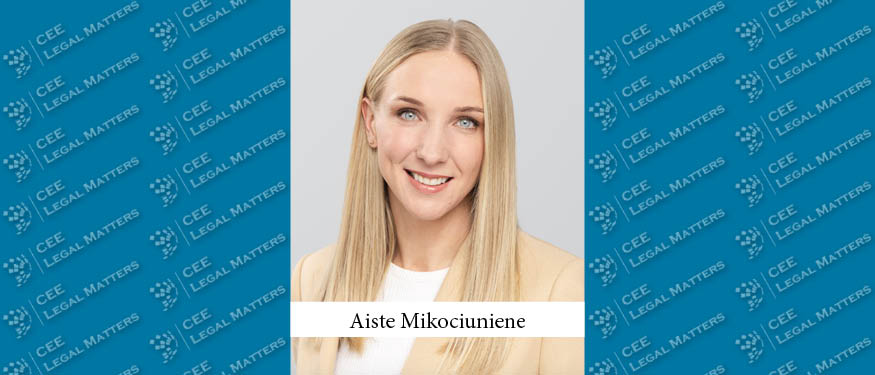Sorainen has advised Pro Bro Group on the sale of its Svaros Broliai car cleaning centres to Seal Group. Tailors reportedly advised Seal Group.
Cobalt and Tegos Advise on GCI and Manulife IM's Creation of Tower Company in Partnership with Tele2
Cobalt, working together with Freshfields Bruckhaus Deringer, has advised Global Communications Infrastructure on its 50/50 partnership with Tele2 to carve out telecom infrastructure assets and create the first tower company covering all three Baltic countries. Tegos, working with Clifford Chance, advised Tele2.
Fort Legal Advises Bondea on Crowdfunding License from the Bank of Lithuania
Fort Legal has successfully advised Bondea on obtaining a crowdfunding license from the Bank of Lithuania.
Ellex and Noor Advise on Gemoss' Acquisition of Sangaida
Ellex has advised Gemoss on its acquisition of Sangaida. Noor advised the sellers.
Ellex Advises Sakalas on Acquisition of Futurus Food
Ellex has advised Sakalas on the acquisition of Futurus Food.
Contentious Reforms in Lithuania: A Buzz Interview with Aiste Mikociuniene of Widen Legal
Sweeping tax reform, corporate governance, and procurement regulation updates have been the main legislative developments in Lithuania this year, according to Widen Partner Aiste Mikociuniene. While some of the changes bring modernization and new incentives, Mikociuniene warns that increased burdens and uncertainties could weigh heavily on businesses and legal professionals alike.
Sorainen Advises Peraltis Shareholders on Sale to Ronelda
Sorainen has advised the shareholders of UAB Peraltis on the sale of their business to UAB Ronelda.
Fort Advises Axiology on DLT Trading & Settlement License in Lithuania
Fort Legal has advised Axiology on obtaining a license enabling the company to operate as a depository, exchange, and broker in Lithuania.
Ellex Advises EBRD on EUR 60 Million Loan to Ignitis Group for EV Charging Rollout in the Baltics
Ellex has advised the European Bank for Reconstruction and Development on a EUR 60 million loan to Ignitis Group.
Closing: Ebury's Acquisition of ArcaPay Now Closed
In July 2025, Walless announced that Ebury's acquisition of ArcaPay (as reported by CEE Legal Matters on January 24, 2025) has closed.
Cobalt Successful for Berlin-Chemie in Trademark Dispute Before Lithuanian Supreme Court
Cobalt has successfully represented Berlin-Chemie before the Supreme Court of Lithuania in a trademark dispute concerning the parallel import of medicinal products.
Sorainen and Cobalt Advise Espersen on Sale of Fish Product Plant to Atlas Premium
Sorainen, working with Horten, has advised Danish fish product producer A. Espersen and its Lithuanian subsidiary Espersen Lietuva on the sale of a fish processing plant located in the Klaipeda Free Economic Zone to Atlas Premium Lietuva. Cobalt advised Atlas Premium.
Ellex Advises Robinhood on Launch of European Hub in Lithuania
Ellex has advised Robinhood on establishing its European hub in Lithuania.
Walless Advises Traxlo on EUR 1.6 Million Fundraising Round
Walless has advised Traxlo on raising EUR 1.6 million in funding to support the expansion of its AI-driven, pay-per-task labor platform across Europe. Tegos reportedly advised Coinvest as the lead investor.
Daiva Usinskaite-Filonoviene Becomes Managing Partner at Noor
Daiva Usinskaite-Filonoviene has become the new Managing Partner at Noor, taking over from Giedrius Murauskas who spent the past three years at the helm of the firm.
DLA Piper Advises The Vita Group on EUR 81.5 Million Receivables Securitization
DLA Piper has advised The Vita Group on the launch of a three-year, EUR 81.5 million trade receivables securitization program. External funding was provided by Santander Corporate and Investment Banking and Finacity Corporation, with retained funding from Vita entities.
From Bronze Night to NIS2: How the Baltics Are Implementing the EU’s New Cybersecurity Regime
In April 2007, Estonia made global headlines — not for a military conflict or natural disaster, but for one of the first coordinated large-scale cyberattacks against a nation-state. Sparked by the relocation of a Soviet-era war memorial in Tallinn (known as the Bronze Night), the country’s digital infrastructure was flooded with denial-of-service attacks. Government websites, banks, media outlets, and essential services were knocked offline. It was a wake-up call: digital threats could now paralyze a country just as effectively as tanks and missiles.
Sorainen Advises Nordspace on EUR 6 Million Bond Listing on Nasdaq First North
Sorainen has advised Nordspace on its EUR 6 million bond offering and listing on the Nasdaq First North alternative market.

























